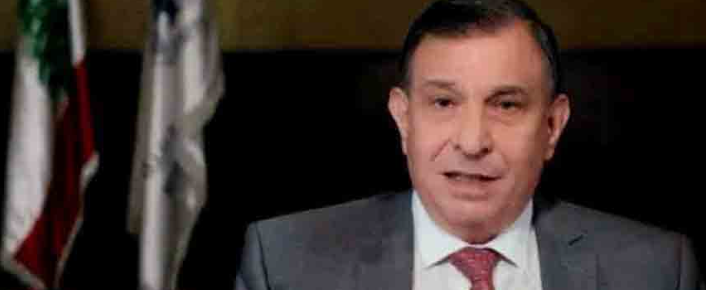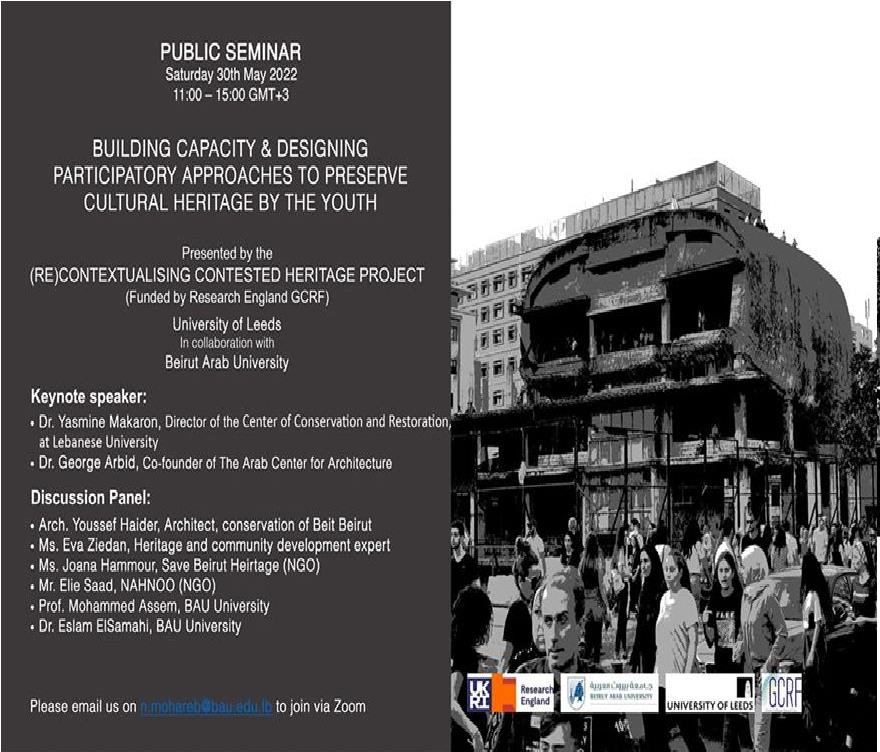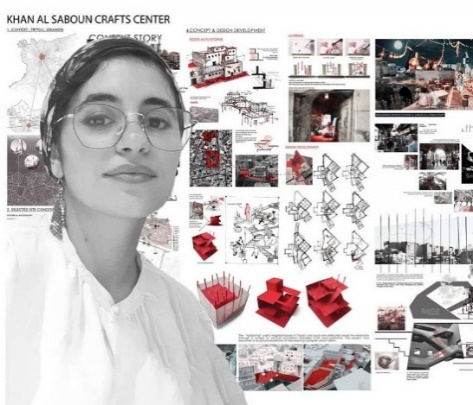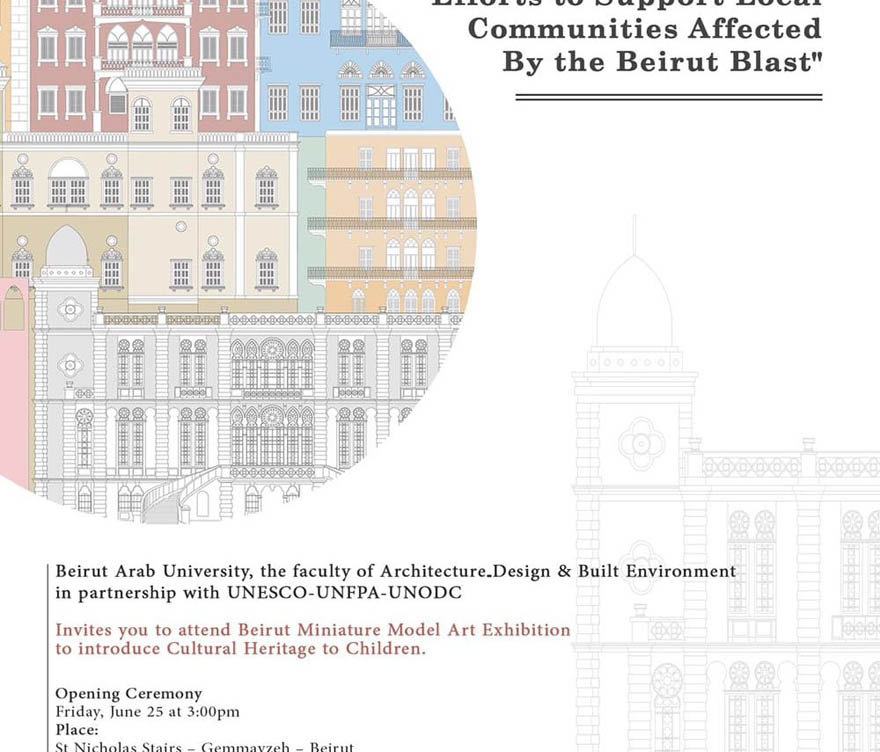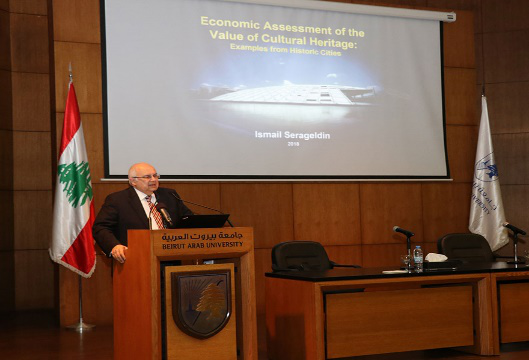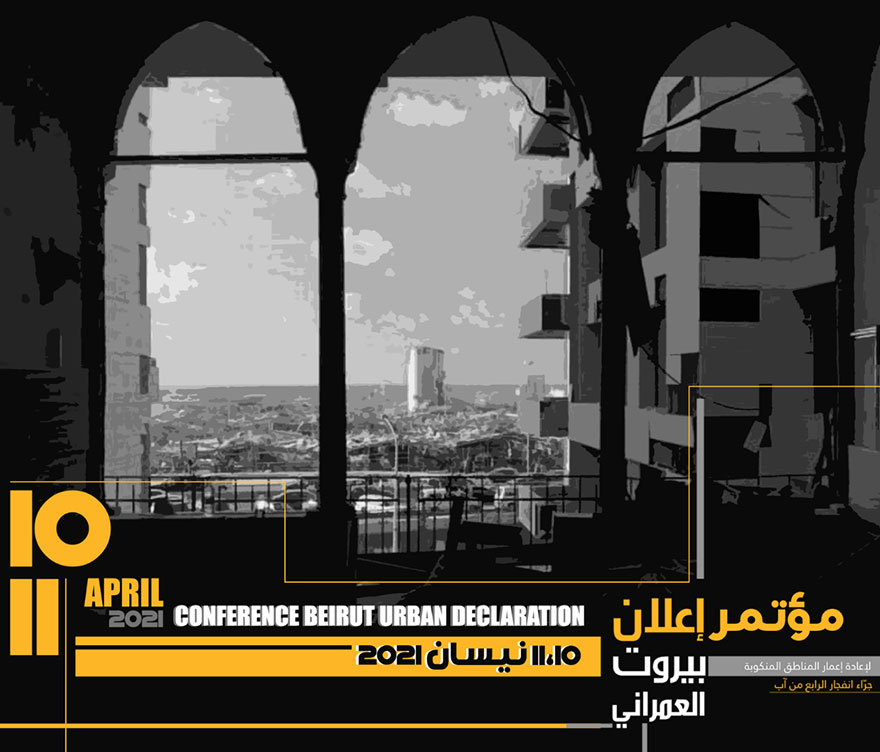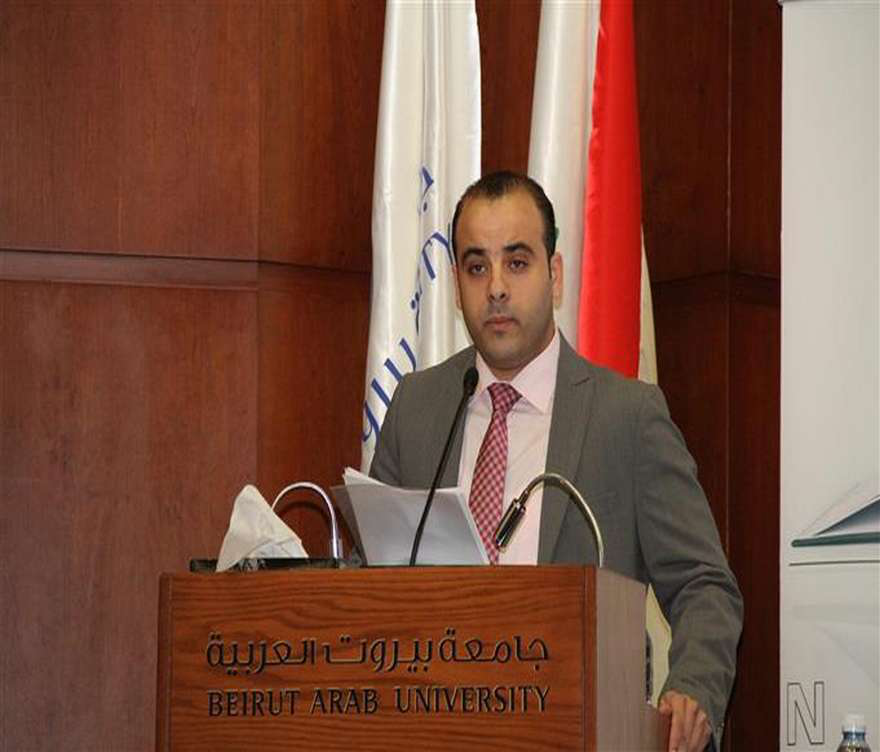Preserve intangible cultural heritage
With the purpose of Preserve intangible cultural heritage, BAU carries out different activities and events that have the objective that people in Lebanon know about the historical heritage and take care of it. For BAU it is important to know the history of the country and keep it in time, for this reason the University has a museum where it shows different monuments and historical books.
From the first moments after Beirut Blast explosion, one of the BAU priorities was to engage in the process of removing the destruction and to mobilize by helping the people in the affected neighborhoods of Beirut. The university has participated, through its students, employees, and the teaching staff, in form of groups that participated in removing rubble and participated in surveying damages, including archaeological buildings in the old neighborhoods.
The real danger is that the rescue plan for the damaged historic buildings is not expedited, by displacing its residents who do not have the capacity to rehabilitate these buildings due to the sensitivity of the origin and the need for expert interventions to preserve the identity and value of these buildings. The step taken by the Order of Engineers and Architects in Beirut to lay down a plan to survey and distinguish buildings of an archaeological nature and pay attention to providing information to those concerned with cultural heritage in general and built heritage in particular.
According to the third weekly report issued by the Order of Engineers and Architects dated on 9/9/2020, and within the surveyed area, 14.1% of heritage buildings are at high risk of collapse/damage and 11.3% are at Mid-risk of collapse/damage showed that nearly a quarter of the surveyed historic buildings were damaged.
The university puts all its capabilities into the urban lab, as well as various equipment, such as a 3D scanning mechanism, and researchers in the field of preserving cultural heritage, including architects and engineers, to contribute with official and non-official bodies, such as the Beirut municipality and the Ministry of Culture represented by the General Directorate of Antiquities, the Order of Engineers and Architects, and civil societies to develop the necessary engineering plans and solutions to save historic buildings that are threatened with collapse and preserve the character of historic Beirut.
In terms of resilience, the post-disaster urban and architectural reconstruction and rehabilitation of cultural built heritage in Beirut should contribute to the sustainable planning agenda of the city. Facing a traumatized society after disastrous events, such as the port blast, the urgent conservation practice will give a sense of localness and recreate the inhabitant’s collective memories concerning the image of their city, which promotes healing on a mid-term plan.
Faculty of Architecture- Design and Built Environment, Beirut Arab University (BAU) in its second collaboration with University of Leeds (UK) are inviting you to the online public seminar ‘Building Capacity & Designing Participatory Approaches to Preserve Cultural Heritage by the Youth’ as a part of the funded project with the title ‘(Re)contextualizing contested heritage project’, #ReConHeritage, funded by Research England GCRF.
The jury praised the project since it provided a comprehensive study on the relationship between social traditions, crafts and the urban fabric of the city. It also extracted realistic solutions to revive the urban heritage and linked it to the surrounding streets.
Within the framework of “Youth-Led rehabilitation efforts to support local communities affected by the Beirut Blast" initiative, BAU – Faculty of Architecture, Design & Built Environment in partnership with UNESCO, UNFPA, and UNODC is pleased to invite you to attend the opening ceremony of “Beirut Miniature Model Art Exhibition to introduce Cultural Heritage to Children” on Friday, June 25 2022 at 3:00 pm at ST Nicholas Stairs, Gemmayzeh.
Beirut Arab University organized a lecture delivered by Dr. Ismail Serageldine entitled “The Value of Cultural Heritage” at Omar Houri Hall – Debbieh Campus.
The Faculty of Architecture - Design and Built Environment at Beirut Arab University participated in Beirut Urban Declaration Conference for restoration of afflicted areas after the huge explosion that occurred on August four.
The conference was organized by the Order of Engineers and Architects in Beirut in cooperation with the Faculties of Architecture in Lebanon whereby this event came after long preparations and workshops in addition to direct field work which started directly after Beirut Port explosion on August 4, 2020. Since then, Professor Ibtihal El-Bastawissi, the Dean of the Faculty of Architecture- Design and Built Environment, has worked within the organizing committees of the Deans of Faculties of Architecture for Beirut Urban Declaration which included five sessions.
She invited a group of university professors from various faculties to participate in all aspects of conference activities in coordination with the Dean of Faculty of Human Sciences, Professor Mayssah El-Nayal. Professor El-Bastawissi also participated in a workshop organized by the Order of Engineers and Architects in Beirut in cooperation with the French government, UNESCO and the International Union of Architects (UIA) in order to achieve this declaration.
The university had interventions in more than one session in the conference where Professor Hassan Hallak gave a lecture entitled "The Economic and Social Role of the Beirut Port," in which he talked about the history of the development of Beirut Port and its economic and social impacts on the city. Dr. Khaled Sadek gave a lecture under the title of "The Urban Fabric of Beirut between History and the Present" in which he dealt with the development of Beirut's urban fabric during the historical eras that the city has gone through.
He mentioned the human values that the city has acquired, which are based on reverence of freedoms, respect of intellectual pluralism and openness to different civilizations. In the fourth session, Dr. Hiba Mohsen gave a lecture entitled "Rehabilitation and Restoration of Damaged Heritage Buildings", in which she discussed the importance of preserving the heritage and the risks that threatens it, in addition to several proposals for the rehabilitation and construction of old neighborhoods.
Beirut Arab University hosted “The Second Specialized Arabic Language Forum – Oral Communication: A Skill and a Mission” on its campus in Beirut. The event was organized in cooperation with the Educational Institutions Network, under the sponsorship of Prof. Amr Galal El Adawi, President of the University, and was attended by Dr. Omar Houri, BAU Secretary General; the deans of faculties; Mr. Kamel Kozbar, President of the Educational Institutions Network; Prof. Ahmed Fares, honorary guest of the Forum; as well as a large crowd of Arabic language teachers from the participating schools.
The Forum aimed at strengthening Classical Arabic, elevating it from the realm of theories and rules to the arena of interaction and dialogue, in the light of the current submission to foreign languages.
This current reality is about to obliterate the aesthetics and importance of Arabic, while wiping out its cultural entity. This can only be combated by activating dialogue and discussion, as well as an alternative culture among students, to revive the language. The Forum opened with a recitation of the Holy Quran, followed by the Lebanese National Anthem, the BAU Anthem and the BAU Introductory Film.
The Master of Ceremony was Mr. Omar Farouk El Nakhal who welcomed the attendees and the audience and announced the launching of the event, describing the Forum as an industrious effort to track down the problems faced by the language, convening at a pan-Arab university that upholds Arabic and implements many of its educational facilities to bring into being this grand idea.
Prof. Amr El Adawi, President of BAU stressed in his word on the necessity to preserve Arabic, the language of heritage, originality and intellect, and the language of communication and education. He emphasized that there should be greater attention paid to research, since it is a basic tool for development, and conducive towards the scientific and intellectual renaissance of our Arab communities.
